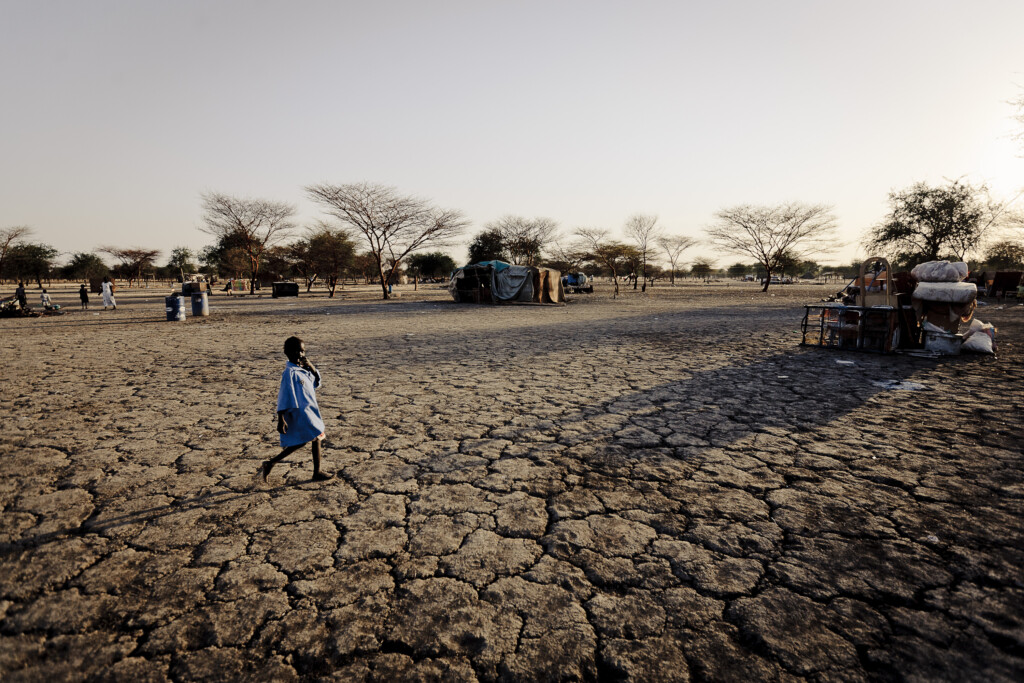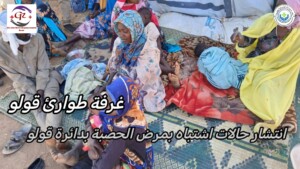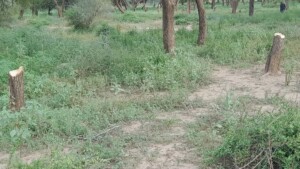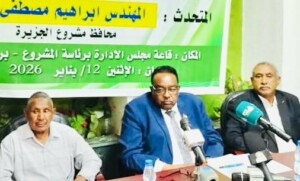Activists question North Kordofan gov promise to increase water supply amidst scarcity

A child walking over a dry plane in Kordofan (File Photo: Tim Freccia / Enough Project)
EL OBEID – March 14, 2023
The acting governor of North Kordofan directed the state’s Water Corporation yesterday to prepare early for the month of Ramadan and the summer and work to increase the water provision, amidst a current drinking water crisis. Activists criticise the government’s tactics.
Acting Governor Fadlallah El Tom highlighted the importance of setting precautions for emergency breakdowns, maintenance, and repair of broken engines and pipes during an emergency meeting with the directors of the state’s localities on the current water crisis in the region, which he chaired.
The governor affirmed his government’s support for the plans to increase the water provision and repair broken mechanisms.
Scarcity
Activists, however, called the authorities’ statements “contradictory to the reality on the ground”. They reported that the acute scarcity of water is continuing in most of the neighbourhoods of the state capital El Obeid, of which the population is estimated at nearly 800,000.
“Another great challenge is the electricity supply,” activist Fatima Hasan told Radio Dabanga. “The new power provision programme of electricity is set to eight hours a day, which may significantly affect the water supply, while we need more water than usual during Ramadan and the summer.”
She also warned of “the impact of the water crisis on hospitals and dialysis centres”.
The Sudanese Society for Astronomy announced on Sunday that the fasting month of Ramadan will start on Thursday, March 23 in Sudan this year.
The summer starts in March and ends in May (South Kordofan) or June (Khartoum), when the rainy season begins. The hottest months are May and June, with temperatures that often approached 50 degrees Celsius in recent years.
Journalist Ahmed Rabah told Radio Dabanga from the North Kordofan capital of El Obeid that he expects the price of a barrel of drinking water to increase to more than SDG 1,200 ($2) during Ramadan and the summer season.
He attributed the water crisis in the city to the lack of will of the authorities to deal with the problem and called statements by the North Kordofan government “inaccurate”.
“Most neighbourhoods do have a water network, but the water supply is just insufficient,” he said. “Therefore the people are still dependent on donkey carts selling drinking water.”
‘In most neighbourhoods, people are still dependent on donkey carts selling drinking water’ – Journalist Ahmed Rabah
Rabah complained about the decline in services in North Kordofan in general, and the provision of water in particular.
The problems are made more severe by the increase of the population due to the influx of displaced people who fled violence in Darfur and West and South Kordofan, and the arrival of more than 20,000 people from areas in the northern part of the state due to drought and desertification.
In a feature on climate change and one on illegal tree felling, Radio Dabanga warned about the dangers of desertification and more severe droughts or floods due to climate change, which could lead to mass displacement.











 and then
and then